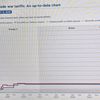5.7.2011 | 19:58
Moody's fellir Portúgal í rusl!
Ţetta er glćný frétt sem fer nú hamförum á helstu fréttavefjum. Fyrstu viđbrögđ markađa ţegar komin fram, ţ.e. Evran sem hefur veriđ í hćkkunarferli gegn dollar síđan sl. helgi, féll aftur til baka gegn dollar. Svona virđist dollar og evra jó-jóa eftir ţví, hvort erfiđleikar í Bandar. eđa Evrópu, eru meir áberandi í fréttum ţá stundina.
Wall Street Journal - Moody's Downgrades Portugal to 'Junk'
Bloomberg - Euro Extends Decline Versus Greenback After Moody’s Cuts Portugal to Junk
Bloomberg - Portugal Ratings Cut to Junk by Moody’s
Bloomberg - Euro Weakens as Moody's Cuts Portugal's Credit Rating; Yen Recoups
Reuters - Moody's downgrades Portugal
Eins og ég skil áhyggjur Moodie's manna, ţá einfaldlega óttast ţeir ađ eins og var reyndin međ Grikkland, ţá takist ekki ađ fylgja niđurskurđar og kostnađarlćkkunarprógrammi fram, ađ ţví marki sem ráđ er fyrir gert.
- Ţannig ađ eins og kom í ljós ţetta sumar, höfđu ekki áćtlađar ađgerđir veriđ framkvćmdar nema ađ hluta.
Síđan óttast ţeir, eins og reynslan hefur veriđ međ Grikkland fram ađ ţessu, ađ samdráttur landsframleiđslu reynist meiri en fyrirfram var ráđ fyrir gert, og ţađ einnig grafi undan prógramminu.
Ađ lokum, virđist ţetta prógramm vera uppsett eins og hin fyrri, ţ.e. prógrammiđ er undirfjármagnađ - gert er ráđ fyrir ađ ríkiđ fari á markađ til ađ sćkja sér pening.
Í tilviki Portúgals eins og fram kemur, er ţađ 2013 eđa ári seinna, en ćtlast var til ađ Grikkland myndi sćkja sér frekari fjármögnun á markađi fyrir skuldabréf.
Moodie's óttast sem sagt, endurtekningu ađ í ljós komi ađ Portúgal muni ekki geta sókt sér fé á markađ, og ţurfi ţví frekari björgun.
---------------------------------------------------Moody's
The following drivers prompted Moody’s decision to downgrade and assign a negative outlook:
1. The growing risk that Portugal will require a second round of official financing before it can return to the private market, and the increasing possibility that private sector creditor participation will be required as a pre-condition.
2. Heightened concerns that Portugal will not be able to fully achieve the deficit reduction and debt stabilisation targets set out in its loan agreement with the European Union (EU) and International Monetary Fund (IMF) due to the formidable challenges the country is facing in reducing spending, increasing tax compliance, achieving economic growth and supporting the banking system.
RATINGS RATIONALE
The first driver informing today’s downgrade of Portugal’s sovereign rating is the increasing probability that Portugal will not be able to borrow at sustainable rates in the capital markets in the second half of
2013 and for some time thereafter. Such a scenario would necessitate further rounds of official financing, and this may require the participation of existing investors in proportion to the size of their holdings of debt that will become due.
Moody’s notes that European policymakers have grown increasingly concerned about the shifting of Greek debt held by private investors onto the balance sheets of the official sector. Should a Greek restructuring become necessary at some future date, a shift from private to public financing would imply that an increasingly large share of the cost would need to be borne by public sector creditors. To offset this risk, some policymakers have proposed that private sector participation should be a precondition for additional rounds of official lending to Greece.
Although Portugal’s Ba2 rating indicates a much lower risk of restructuring than Greece’s Caa1 rating, the EU’s evolving approach to providing official support is an important factor for Portugal because it implies a rising risk that private sector participation could become a precondition for additional rounds of official lending to Portugal in the future as well. This development is significant not only because it increases the economic risks facing current investors, but also because it may discourage new private sector lending going forward and reduce the likelihood that Portugal will soon be able to regain market access on sustainable terms.
The second driver of today’s rating action is Moody’s concern that Portugal will not achieve the deficit reduction target — to 3% by 2013 from 9.1% last year as projected in the EU-IMF programme — due to the formidable challenges the country is facing in reducing spending, increasing tax compliance, achieving economic growth and supporting the banking system. As a result, the country may be unable to stabilise its debt/GDP ratio by 2013. Specifically, Moody’s is concerned about the following sources of risk to the budget deficit projections:
1) The government’s plans to restrain its spending may prove difficult to implement in full in sectors such as healthcare, state-owned enterprises and regional and local governments.
2) The government’s plans to improve tax compliance (and, hence, generate the projected additional revenues) within the timeframe of the loan programme and, in combination with the factor above, may hinder the authorities’ ability to reduce the budget deficit as targeted.
3) Economic growth may turn out to be weaker than expected, which would compromise the government’s deficit reduction targets. Moreover, the anticipated fiscal consolidation and bank deleveraging would further exacerbate this. Consensus growth forecasts for the country have been revised downwards following the EU/IMF loan agreement. Even after these downward revisions, Moody’s believes the risks to economic growth remain skewed to the downside.
4) There is a non-negligible possibility that Portugal’s banking sector will require support beyond what is currently envisaged in the EU/IMF loan agreement. Any capital infusion into the banking system from the government would add additional debt to its balance sheet.
Moody’s acknowledges that its earlier concerns about political uncertainty within Portugal itself have been largely resolved. Portugal’s national elections on 5 June led to the formation of a viable government, both components of which had campaigned on the basis of supporting the EU-IMF loan agreement negotiated by the previous government. Moody’s also acknowledges the policy initiatives announced at the end of June demonstrate the new Portuguese government’s commitment to the programme.
However, the downside risks (as detailed above) are such that Moody’s now considers the government long-term bond rating to be more appropriately positioned at Ba2. The negative outlook reflects the implementation risks associated with the government’s ambitious plans.
WHAT COULD CHANGE THE RATING UP/DOWN
Developments that could stabilise the outlook or lead to an upgrade would be a reduction in the likelihood that private sector participation might be required as precondition for future rounds of official support or evidence that Portugal is likely to achieve or exceed its deficit reduction targets.
A further downgrade could be triggered by a significant slippage in the execution of the government’s fiscal consolidation programme, a further downward revision of the country’s economic growth prospects or an increased risk that further support requires private sector participation.
-----------------------------------------Moody's
Niđurstađa
Ég held ađ áhyggjur Moodie's manna séu algerlega réttmćtar. En, ef ţeir óttast um ţađ hvort Portúgal komist á markađ 2013. Hvađ ţá međ Írland sem enn er ráđgert eins og var reyndin međ Grikkland, ađ muni sćkja sér fé á nćsta ári.
En, ég stórefa ađ Írar muni ná ţví í ljósi mjög hárrar vaxtakröfu sbr. 10 ára bréf á bilinu milli 10-11%.
Ţetta mál reikna ég međ ađ gjósi upp á nćstu vikum eđa mánuđum.
-------------------------
Síđan má ekki gleyma snilldinni, ađ nýtt björgunarplan Grikklands hefur nú endurskođun á 3. mánađa fresti ţ.e. nćst í september nk. Ţá má í hvert sinn reikna međ nýju drama ţ.e. - fćr Grikkland peninginn greiddann út eđa verđur ţađ greiđsluţrota?
Svona skemmtileg stöđug spenna sem er framundan, sérdeilis í ljósi ţess hve óskaplega krefjandi ţađ er, en Grikkland ţarf ađ spara cirka heil fjárlög af útgjöldum nćstu 3. árin.
Kv.
Stjórnmál og samfélag | Breytt 6.7.2011 kl. 10:54 | Slóđ | Facebook | Athugasemdir (2)
Bloggfćrslur 5. júlí 2011
Um bloggiđ
Einar Björn Bjarnason
Nýjustu fćrslur
- Trump getur hafa eyđilagt fyrir sjálfum sér: Dómsmáliđ gegn, ...
- Gćti 3ja heimsstyrrjöldin hafist á Indlandshafssvćđinu? Skv. ...
- Er samningur Trumps viđ Japan - er inniber 550 milljarđa$ fjá...
- Hótel-bókanir í sumar, gefa vísbendingar um kjaraskerđingu al...
- Kjarnorkuáćtlun Írana hefur líklega beđiđ stórtjón, fremur en...
- Netanyahu, virđist hafa hafiđ stríđ viđ Íran - beinlínis til ...
- Trump ákveđur ađ senda, Landgönguliđa - til Los-Angeles! Kemu...
- Möguleiki ađ Úkraína hafi í djarfri árás á flugvelli sumir mö...
- Yfirlýsing Trumps um yfirvofandi 50% tolla á ESB lönd, afhjúp...
- Tollar Bandaríkjanna á Kína - líklega ca: 50%. Kína á Bandarí...
- Ađ ţađ verđur af hráefnasamningi Úkraínu og Bandaríkjanna - v...
- Margt bendi til yfirvofandi kreppu í Bandaríkjunum! Skv. áhug...
- Vaxandi líkur á ađ Trump, reki: Jerome Powell. Yfirmann Seđla...
- Gideon Rachman hjá Financial Times -- útskýrir af hverju, Ban...
- Trump undanskilur frá tollum á Kína -- snjallsíma, og nánast ...
Nýjustu athugasemdir
Eldri fćrslur
2025
2024
2023
2022
2021
2020
2019
2018
2017
2016
2015
2014
2013
2012
2011
2010
2009
2008
Bloggvinir
-
 eyglohardar
eyglohardar
-
 bjornbjarnason
bjornbjarnason
-
 ekg
ekg
-
 bjarnihardar
bjarnihardar
-
 helgasigrun
helgasigrun
-
 hlini
hlini
-
 neytendatalsmadur
neytendatalsmadur
-
 bogason
bogason
-
 hallasigny
hallasigny
-
 ludvikjuliusson
ludvikjuliusson
-
 gvald
gvald
-
 thorsteinnhelgi
thorsteinnhelgi
-
 thorgud
thorgud
-
 smalinn
smalinn
-
 addabogga
addabogga
-
 agnarbragi
agnarbragi
-
 annabjorghjartardottir
annabjorghjartardottir
-
 annamargretb
annamargretb
-
 arnarholm
arnarholm
-
 arnorbld
arnorbld
-
 axelthor
axelthor
-
 arnith2
arnith2
-
 thjodarsalin
thjodarsalin
-
 formosus
formosus
-
 birgitta
birgitta
-
 bjarnijonsson
bjarnijonsson
-
 bjarnimax
bjarnimax
-
 westurfari
westurfari
-
 virtualdori
virtualdori
-
 bookiceland
bookiceland
-
 gattin
gattin
-
 davpal
davpal
-
 dingli
dingli
-
 doggpals
doggpals
-
 egill
egill
-
 jari
jari
-
 einarborgari
einarborgari
-
 einarsmaeli
einarsmaeli
-
 erlaei
erlaei
-
 ea
ea
-
 fannarh
fannarh
-
 fhg
fhg
-
 lillo
lillo
-
 gesturgudjonsson
gesturgudjonsson
-
 gillimann
gillimann
-
 bofs
bofs
-
 mummij
mummij
-
 gp
gp
-
 gudmbjo
gudmbjo
-
 hreinn23
hreinn23
-
 gudrunmagnea
gudrunmagnea
-
 gmaria
gmaria
-
 topplistinn
topplistinn
-
 skulablogg
skulablogg
-
 gustafskulason
gustafskulason
-
 hallurmagg
hallurmagg
-
 haddi9001
haddi9001
-
 harhar33
harhar33
-
 hl
hl
-
 diva73
diva73
-
 himmalingur
himmalingur
-
 hjaltisig
hjaltisig
-
 keli
keli
-
 fun
fun
-
 johanneliasson
johanneliasson
-
 jonsullenberger
jonsullenberger
-
 rabelai
rabelai
-
 jonl
jonl
-
 jonmagnusson
jonmagnusson
-
 jonvalurjensson
jonvalurjensson
-
 thjodarskutan
thjodarskutan
-
 gudspekifelagid
gudspekifelagid
-
 juliusbearsson
juliusbearsson
-
 ksh
ksh
-
 kristbjorg
kristbjorg
-
 kristinnp
kristinnp
-
 larahanna
larahanna
-
 leifurbjorn
leifurbjorn
-
 lifsrettur
lifsrettur
-
 wonderwoman
wonderwoman
-
 maggij
maggij
-
 elvira
elvira
-
 olafureliasson
olafureliasson
-
 olinathorv
olinathorv
-
 omarragnarsson
omarragnarsson
-
 ottarfelix
ottarfelix
-
 rafng
rafng
-
 raksig
raksig
-
 redlion
redlion
-
 salvor
salvor
-
 samstada-thjodar
samstada-thjodar
-
 fullvalda
fullvalda
-
 fullveldi
fullveldi
-
 logos
logos
-
 duddi9
duddi9
-
 sigingi
sigingi
-
 sjonsson
sjonsson
-
 sigurjons
sigurjons
-
 stjornlagathing
stjornlagathing
-
 athena
athena
-
 stefanbogi
stefanbogi
-
 lehamzdr
lehamzdr
-
 summi
summi
-
 tibsen
tibsen
-
 vala
vala
-
 valdimarjohannesson
valdimarjohannesson
-
 valgeirskagfjord
valgeirskagfjord
-
 vest1
vest1
-
 vignir-ari
vignir-ari
-
 vilhjalmurarnason
vilhjalmurarnason
-
 villidenni
villidenni
-
 thjodarheidur
thjodarheidur
-
 valli57
valli57
-
 tbs
tbs
-
 thorgunnl
thorgunnl
-
 thorsaari
thorsaari
-
 iceberg
iceberg
Heimsóknir
Flettingar
- Í dag (30.9.): 6
- Sl. sólarhring: 8
- Sl. viku: 375
- Frá upphafi: 871890
Annađ
- Innlit í dag: 6
- Innlit sl. viku: 351
- Gestir í dag: 6
- IP-tölur í dag: 6
Uppfćrt á 3 mín. fresti.
Skýringar




